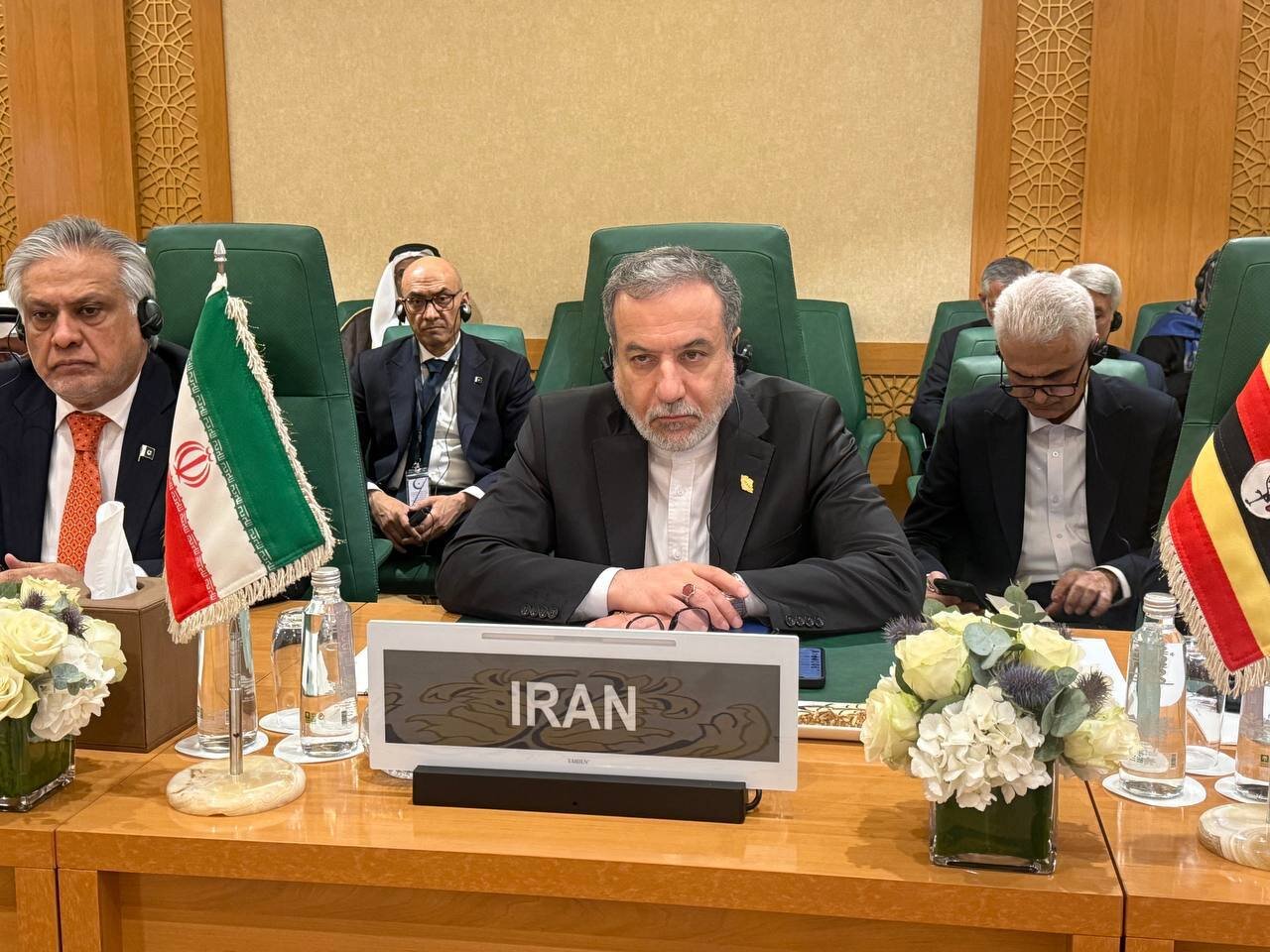‘History will not forgive delay in ending the Gaza tragedy’: Araghchi
Attending an OIC session, Iran’s FM calls upon the Muslim world to finally do something about Israel’s crimes

TEHRAN – Iranian Foreign Minister Abbas Araghchi asked Muslim leaders on Monday to take decisive action to put an end to Israel’s massacre of Palestinians in Gaza, warning that the region may never be able to stand against Israeli violence if it does not act now.
Araghchi made the remarks in an address to an extraordinary meeting of the Council of Ministers of Foreign Affairs of the Member States of the Organization of Islamic Cooperation (OIC) in the Saudi city of Jeddah.
“What is unfolding before our eyes is the organized destruction of besieged people by a ruthless apartheid regime that acts with complete impunity,” he said. “Muslim states should stop making hollow and inactive condemnations about the Gaza onslaught and instead impose sanctions on Israel and bring the usurping entity to account for its war crimes in the blockaded territory.”
Since October of 2023, Israel has killed over 60,000 people in Gaza, at least 83% of whom it admits were civilians, and made the enclave uninhabitable for the remaining population by bombing homes, hospitals, places of worship, and education centers. It has also prevented the flow of food and water into the territory, making Gazans grapple with a man-made famine as well.
Apart from the Yemeni and Iranian governments and Resistance groups in Lebanon and Iraq, which have carried out numerous attacks against Israeli positions in the occupied territories in the past two years, regional states have so far been loath to take meaningful action against the regime. But recent remarks by Israel’s Prime Minister Benjamin Netanyahu who told Hebrew media that he feels “attached” to the vision of the “Greater Israel” racked the Arab rulers and made them come out with statements that roundly criticized the Israeli leader for threatening their national security.
The “Greater Israel” refers to an expansionist Zionist vision that lays claim to the West Bank, Gaza, Jordan as well as parts of Egypt, Syria, Iraq, Saudi Arabia, and Turkey.
It is not clear whether the controversy could further shelve a normalization process between Israel and Arab states, which began during Donald Trump’s first term in office and was expanding before the Gaza war broke out. Saudi Arabia was supposed to join the so-called Abraham Accords and follow in the footsteps of the UAE and Bahrain around the same time the war started.
“Let us remember that the tragedy of Gaza does not concern only Muslims. It is a test for the global conscience. Therefore, we call on all nations, regardless of religion or geography, to stand on the side of humanity, justice, and dignity, which is the right side of history,” Araghchi stated during his speech. “History will not forgive delay. Gaza cannot wait. The time for action is now.”
The Iranian diplomat repeated his remarks during separate meetings with his Muslim counterparts on the sidelines of the OIC session.
Israeli officials have said multiple times in the past months that they plan to remove Palestinians from Gaza. Some of the regime’s politicians have said an integration of the enclave into Israel would be the next step. Analysts have been warning that once Israel gets to occupy Gaza and also quell Palestinians in the West Bank, it will be well-placed to pursue its ambitions for the “Greater Israel”.
“Arab rulers operate under the assumption that by stepping back and refraining from action against Israel’s unchecked violence, they can ensure Israel will not target them,” said Mohammad-Reza Moradi, a West Asia expert and director of Mehr News Agency’s international service. “However, the truth is that, at best, Arabs are only postponing the day they become Israel’s target. Israelis have always pursued the goal of a ‘Greater Israel,’ a concept even Theodor Herzl, the founder of Zionism, believed in.”
Moradi explained that this inaction is driven not only by a misreading of the situation but also by a lack of courage, stemming from a deep dependence on the United States—Israel’s most important supporter—for their own security. “Over the past eight decades, Arabs have failed to build an independent security apparatus and military. This reliance on Washington makes it difficult for them to act against Israel, even if they were to collectively conclude that they have no other option left.”
The Israeli regime recently approved of a settlement project in the occupied West Bank that sees construction in an area known as E1, a region considered critical to any future Palestinian state. In the meantime, it is negotiating with the new rulers in Syria to construct a corridor that extends through the Arab country to reach the Euphrates. Both moves are being interpreted as steps towards the realization of the “Greater Israel”, Moradi added.
Leave a Comment